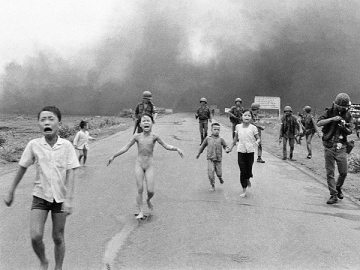Facebook Backpedals on Censoring Iconic ‘Napalm Girl’ Photo
Toggle Dark Mode
Facebook’s editorial standards have been on trial for the past year, for a series of gaffes and embarrassing mistakes that have damaged the reputation of its prized News Feed algorithm.
This week, the social platform and news hub courted controversy after it censored an iconic Vietnam War photograph posted by a Norwegian newspaper, Aftenposen. Facebook initially accused the photograph– a Pulitzer-prize winning image of a naked 9-year-old fleeing a napalm attack– of violating its standards on nudity and child pornography.
“Any photographs of people displaying fully nude genitalia or buttocks, or fully nude female breast, will be removed,” Facebook said in a warning to Aftenposen just before it deleted the photo from the newspaper’s page.
Outraged Facebook users, including the Prime Minister of Norway, took to re-posting the photo in protest, arguing that the historic image was not obscene.
After days of withering criticism, Facebook relented and reinstated the photo in light of “its status as an iconic image of historical importance.”
 This Historic Photo is Sparking Modern Controversy
This Historic Photo is Sparking Modern Controversy
What may have tipped the balance was the action of Espin Egil Hansen, editor-in-chief of Aftenposen, who published the photo on the front page of his newspaper alongside an open letter to Zuckerberg. In it, he accused the Facebook CEO of being “the world’s most powerful editor” and criticized him for failing to see a distinction between child pornography and documentary photographs.
The world-renowned photograph was initially published on the front page of the New York Times in 1972 and has since been republished numerous times, including in school textbooks.






